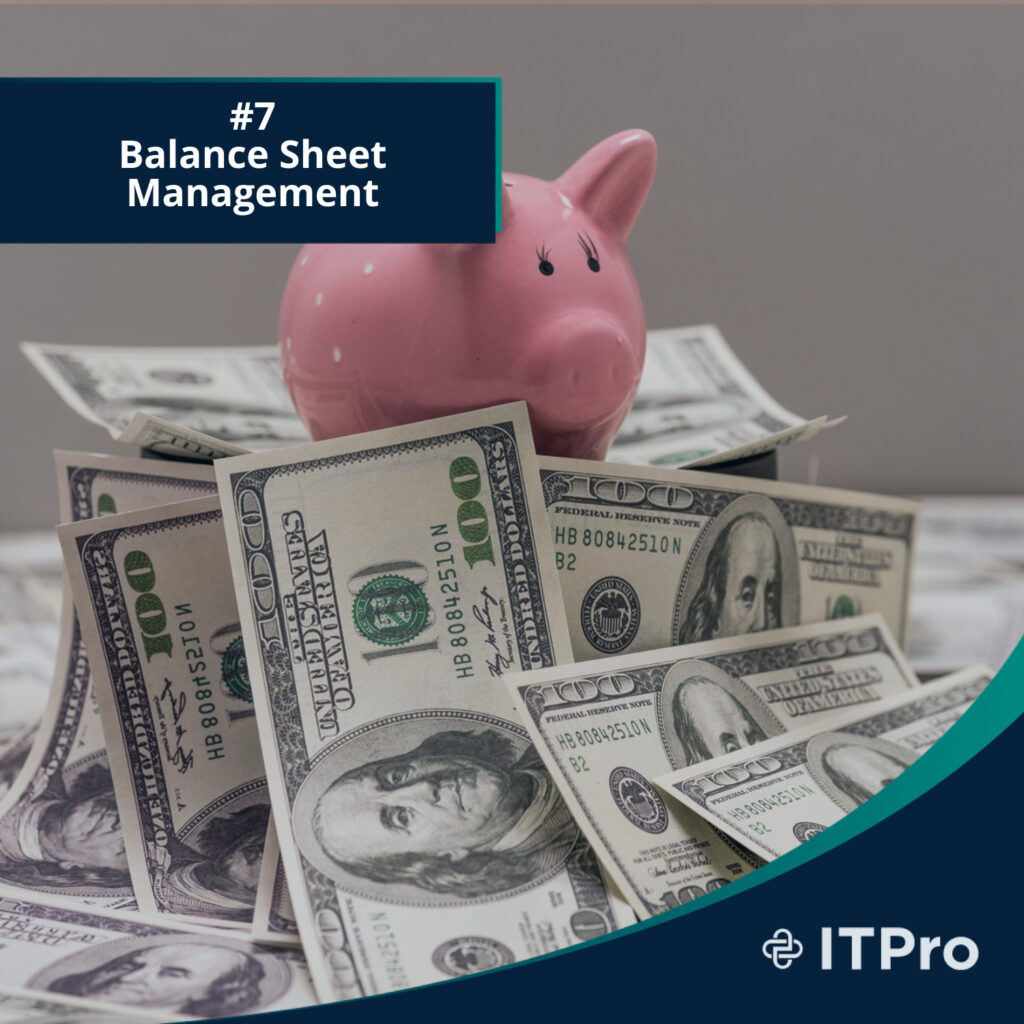For any business, managing the balance sheet is a crucial but often overlooked aspect of financial planning and strategy. While profit and loss statements tend to get more attention, a company’s balance sheet can provide critical insights into its financial health and ability to adapt to changing business conditions. This is especially true when it comes to managing fixed versus variable costs.
Information technology (IT) in particular has traditionally been viewed as a fixed cost center by most companies. However, advances in cloud computing and managed IT services have made it possible for businesses to convert their technology from a fixed expense to a flexible, variable cost structure. Doing so can benefit the balance sheet in multiple ways.
The Problem of Fixed IT Costs
Maintaining an in-house IT infrastructure has always required significant upfront and recurring investments. Companies must purchase hardware like servers, computers, and networking equipment. They also need software licenses for operating systems, security tools, collaboration platforms, and end user applications. Additionally, a full IT staff must be hired to keep systems running.
All of these costs are typically fixed, meaning companies pay the same amount regardless of demand or usage fluctuations. For example, $100,000 might be budgeted every year for IT staff salaries whether last year’s issues take more or less time to resolve. Such fixed expenditures reduce financial flexibility.
Worse still, as technology evolves rapidly, upgrades add even more fixed costs. New servers, new software versions, more advanced security tools, and additional IT headcount get layered over what has already been purchased previously. Before long, companies find themselves locked into an ever-increasing fixed cost spiral.
The Variable Cost Benefits of Outsourcing
Outsourced managed IT services offer an appealing way for companies to regain control over their IT costs and balance sheets. Leading managed service providers (MSPs) leverage economies of scale to deliver solutions at much lower costs than feasible in-house. MSP data centers provide cloud hosting capacity that is shared across many customers. IT staff resources are likewise pooled and shared for greater efficiency.
Most importantly, outsourced services allow IT costs to be converted from fixed to variable. Instead of purchasing servers, companies can spin up cloud hosted infrastructure and only pay for actual usage. Software and applications can be provided on a software-as-a-service (SaaS) basis with monthly fees based on the number of users. IT staff time is billed for specific tasks and projects as needed instead of having full-time salaries on payroll regardless of workloads.
All of this transforms IT from a large fixed cost center into a flexible operating expense that rises and falls with the business. Variable cost structures free up cash flow that would otherwise be trapped paying for unused on-premise resources. That money can then be invested into more productive areas.
Strengthening the Entire Balance Sheet
Beyond core IT costs, outsourcing delivers balance sheet advantages in multiple ways:
Reduced Capital Expenditures
By eliminating large upfront investments into on-premise IT assets, companies can redirect that capital into other areas of the business. Moving to cloud computing is essentially “renting” IT infrastructure rather than purchasing it outright. This preserves capital availability for expanding production capacity, developing new products, upgrading facilities, and other projects.
Asset Optimization
Transferring IT infrastructure off the books also improves key financial ratios by reducing fixed assets. Return on assets (ROA) increases when a company generates the same profit with fewer assets on the balance sheet. This signals more efficient use of capital. Outsourcing also boosts return on equity (ROE) by raising net income as a percentage of shareholder equity.
Increased Liquidity
Variable costs increase cash flow available for other functions like sales, marketing and finance. More money is freed up on a recurring basis versus being locked into long term capital expenditures. This gives companies greater financial flexibility to pursue new opportunities and adapt to market changes.
Risk Mitigation
On-premise IT infrastructure carries inherent risks of unexpected failures leading to expensive downtime and recovery costs. By outsourcing to managed service providers, companies transfer responsibility for security, data protection, and uptime to the vendor. This reduces balance sheet risk exposure related to IT operations and disaster recovery.
Focus on Core Competencies
Every business has unique capabilities that differentiate it in the marketplace. Outsourcing IT allows them to focus resources on those competencies rather than developing commoditized tech infrastructure. The balance sheet impact is more productivity and profitability from core operations.
As this illustrates, shifting to a variable IT cost model delivers multiple benefits across the financial statements. The flexibility helps companies optimize spending and capital allocation across changing business conditions. And the stronger overall balance sheet reduces risks enabling more aggressive growth strategies.
The Outsourcing Equation: Lower Costs + Higher Quality
Some companies considering IT outsourcing worry about service quality or security risks. Such concerns are understandable given how critical technology has become. However, leading managed service providers offer enterprise-grade solutions at much lower costs than internal IT departments.
The cost savings stem from several structural advantages:
- Economy of Scale
MSPs serve multiple clients, aggregating demand and resources for efficiency. This brings down costs through sheer volume in terms of bargaining power, resource utilization, and pooled labor. Buying 50 servers for one company is much pricier than buying 5,000 for many companies. - Specialization
By focusing specifically on managed services instead of general IT, MSPs develop specialized infrastructure, tools, and expertise that translate to superior service quality and reliability. Their facilities employ extensive redundancy to guarantee near 100% uptime. - The Latest Technology
Top tier MSPs continuously upgrade to the latest hardware, software, security tools, and disaster recovery systems. This ensures clients always benefit from cutting edge solutions without costly upgrades.
In essence, outsourcing to MSPs brings enterprise-class IT capabilities and expertise to companies that they likely could not replicate internally at reasonable cost. This allows converting fixed expenses to variable without operational risks or quality concerns.
Finding the Right Managed IT Services Partner
Clearly, outsourcing IT infrastructure, applications, and related services to an MSP can deliver substantial balance sheet advantages. But not all providers are equal. Finding one that fits your company’s needs and priorities is critical. The ideal partner:
- Offers a full range of managed IT services spanning infrastructure, security, communications, cloud solutions, and more
- Has proven experience supporting companies in your specific industry
- Employs top certified technical staff and best-practice processes
- Features state-of-the-art monitoring, automation, and reporting systems
- Provides guaranteed SLAs for security, uptime, and responsiveness
- Explains services and pricing clearly with no hidden fees
- Integrates tightly with existing tools and software where needed
- Scales smoothly as your needs grow over time
Vet potential vendors thoroughly and ask about their technical capabilities, security protocols, and service history. Validate several customer references to get direct feedback on their offerings and support model. Clear, responsive communication is also telling during evaluations.
The Takeaway: Flexibility and Focus
For any business seeking enhanced financial flexibility along with lower, more predictable operating costs, outsourcing IT to a managed service provider is compelling. As technology needs inevitably continue growing in coming years, offloading infrastructure and software to specialized MSP partners offers a strategic path. Companies can redirect capital to fuel growth, free up cash flow, and strengthen balance sheet performance.
Just as vital, outsourcing technology lets companies focus their in-house talent, time, and money on core business functions rather than supporting commoditized IT infrastructure. Their people can spend more time delivering value to customers instead of maintaining servers or troubleshooting networks.
Partnering with MSPs that offer comprehensive managed IT services allows enterprises to leverage world-class technical capabilities without large fixed investments. In today’s fast-changing business landscape, that type of financial and operational agility is invaluable. The variable cost structure provides flexibility to scale and adapt quickly when market conditions shift.
For leadership teams seeking to optimize capital allocation, increase productivity, mitigate risks, and heighten competitiveness, outsourced IT is an increasingly appealing strategic choice. The balance sheet benefits alone make it worthy of consideration.



